Howdy! Go through this, you wish? Please do so – if:
- You try to get better at negotiations, seeking tips & advice, especially if you are in your early career stages.
- You search for valuable negotiation case studies to get inspired from.
- You enjoy reading content with a personal tone.
Wouldn’t like to make you feel you got clickbaited. Have fun!
Think of yourself in these situations.
- Your partner suggests eating out at their favorite Italian food joint. But you wanted Thai today!
- Your manager asks you to handle one of the worst projects ever imagined.
- An old relative calls you and pleads for immediate help to fix their smartphone.
In all these moments, you have a choice.
You may say yes, but risk losing lots of time & energy. Plus, you hate Italian food (ok, dystopian example, nobody hates Italian cuisine).
Or you could say no – but risking fighting, souring relations, and getting into a deep, gloomy rabbit hole.
But there is always – almost always – a third option. And, most of the time, it can be the best one.
That is to negotiate.
But wait, you ask – isn’t this only about… money?
Nope! You can negotiate about, well, almost anything in life.
Sure, some of my favorite ones have been from when I was in Egypt, and they were money-related. Every street vendor will negotiate fiercely – and they will anticipate you striking back! Sometimes, the more skillful you are, the more you earn their respect.
But these cases won’t be covered today.
Instead, let’s discuss three professional-related, applied negotiation examples I have experienced in my career’s early stages. Leading me to learn nine prime tips.
Bolstered & inspired by some career-saving tips from the Negotiations Certification by the American Negotiations Institute & LinkedIn Learning courses. Go through them if you have the +7 hours to spend, as they are worth it.
Ready to get better at negotiations? Let’s go!
Table of Contents
Case No. 1 – The Salary Negotiations That Exceeded Expectations
The job market is, arguably, horrible right now. For the employees, that is – companies are having a blast.
And if you are a job seeker, I hope you are doing well – I know it’s a struggle. And you can do it!
Let me say this: If you need a coach to help you land a job, solve some of your professional dilemmas, and generally navigate changes in your professional life, click the following button to send me an email!
Let me continue with the example now that I am off with the beta-phase self-promotion of my coaching services.
Anyway, some time ago, things were not always the same. Back then, I was searching for a job and was nailing an interview series. I was going through the funnel, and at some point in the middle, they asked me the cursed question:
“What are your salary expectations?”
Tip 1: Always do your research before negotiating.
When you are going into a negotiation, you should prepare depending on its context. Think of these universal questions, for example:
- Who has more power between parties? Why?
- What are their weaknesses? Which are yours?
- What are you hoping to accomplish?
- Which party has time to their advantage?
- What are your red lines?
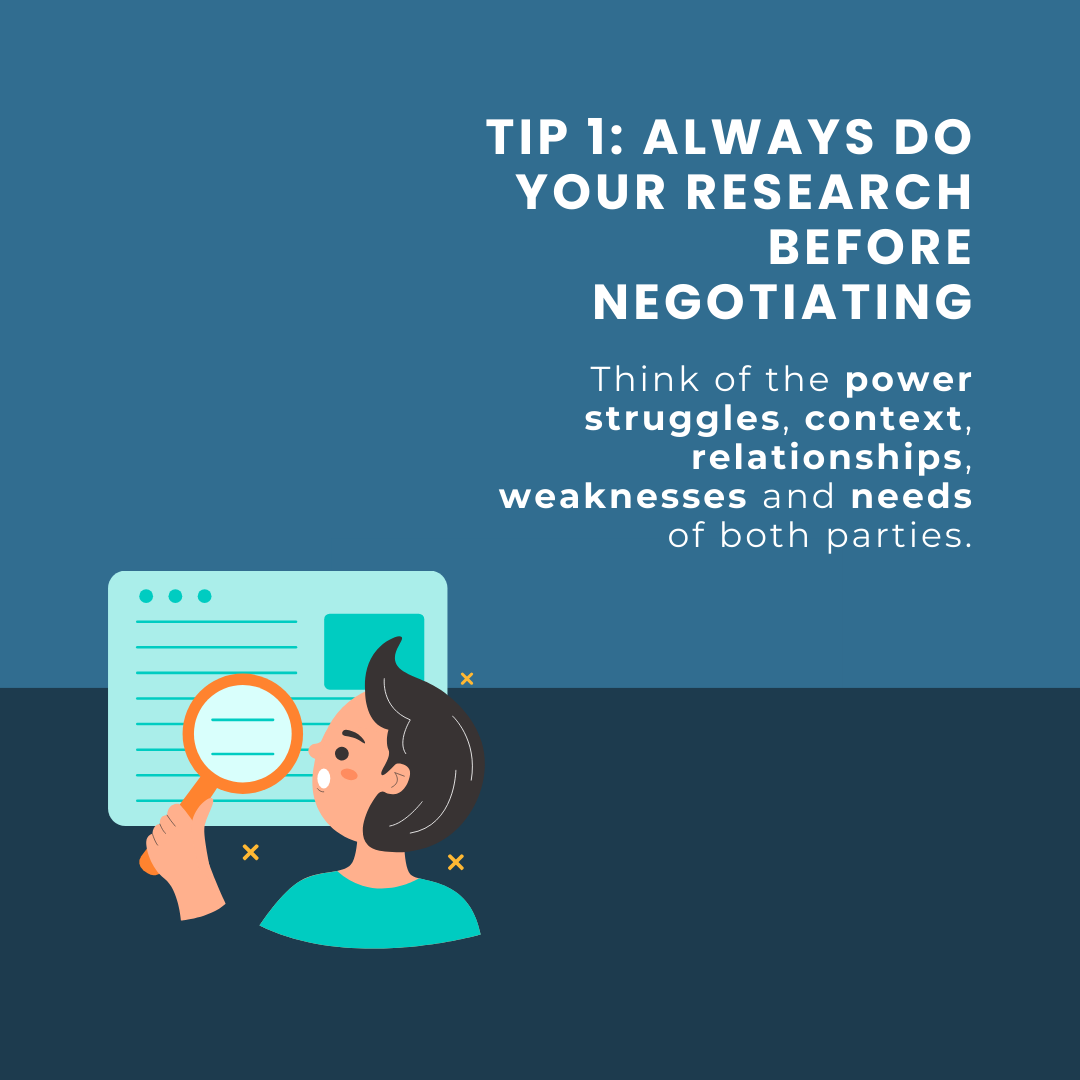
You may find more questions than these. Think well, and source them from your specific case.
In ours, handling the salary negotiations does come down to research. However, finding information on salaries can be tricky. Because it was a big organization, I salvaged some information on Glassdoor. In the end, I ended up giving a range of round numbers. Hypothetical numbers, 32 to 36K EUR. Why?
- It was a reasonable increase compared to my previous role.
- It undercut similar role compensations I saw on Glassdoor.
And I replied to my email with that range.
Chances were that, some days later, they called me to give me the role. And I was ready at a moment’s notice to negotiate for the best thing I could get!
But what I heard baffled me.
“We are offering you 37K for this role, alongside other benefits”.
They gave me one thousand more than I asked for. Which seems like a best-case scenario, right?
Well, almost. Because:
- I forgot that it’s a whole remuneration package and failed to pay attention to the relatively low bonus %.
- I crumbled easily when I asked for a relocation bonus & the other party mentioned that the offer was higher to cover that.
This was a blessing in disguise and a strong starting negotiation lesson. Why?
Tip 2: If you don’t ask, you don’t get.
Don’t be afraid to ask for what you feel you deserve.
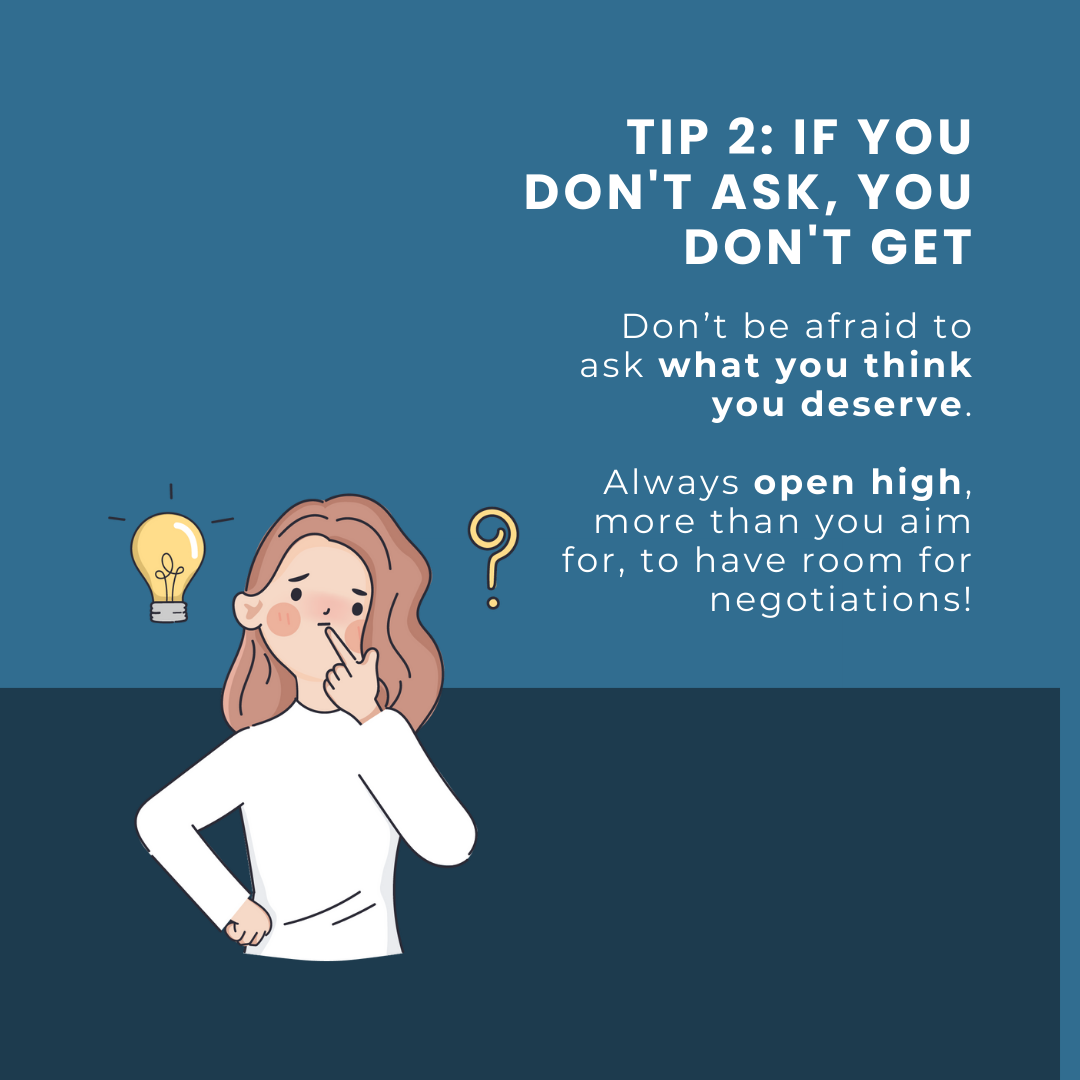
In my situation, it’s obvious I was conservative with my range. And that probably hurt my chances of ever receiving a good offer.
Of course, I didn’t know it before. And, sometimes, it is indeed better to accept a fantastic offer at face value, to not risk losing it, or even damaging your relations with the other party.
You have to judge numerous things when you make or accept an offer. Nevertheless, don’t be scared to request something you deem as fair for you.
Let’s move on to a second lesson, towards more hardcore negotiations!
Case No. 2 – The deal that almost went south, but was saved at the last minute
In a previous role, we had to negotiate licensing contracts for content, like series and movies. Big players, huge budgets, and highly experienced partners were involved.
That role specifically made me love negotiations.
The first thing I managed to learn was this.
Tip 3: Think of it like a game!
Because, in the end, it’s a game. And such a captivating one.
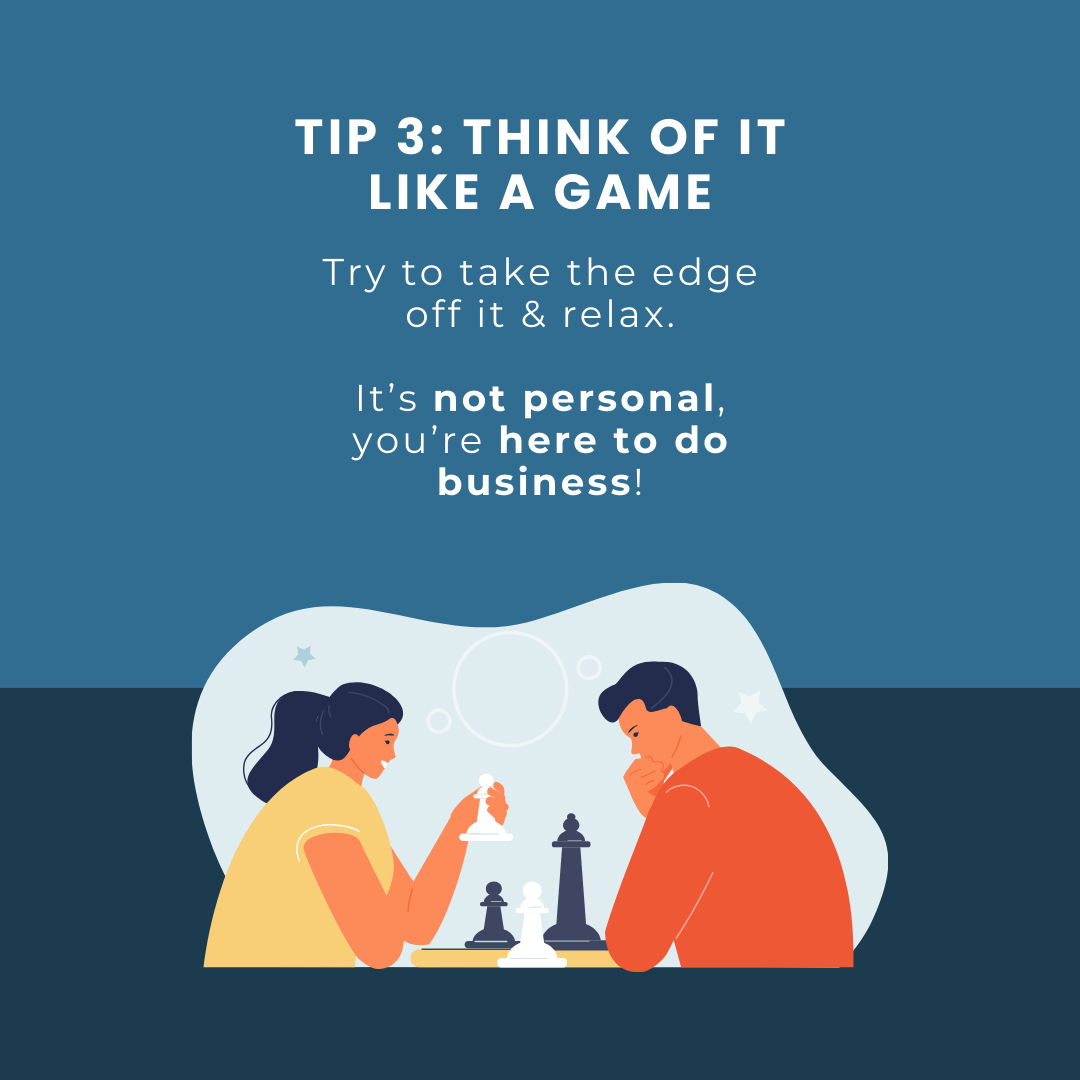
They sell, you buy, and you both try different strategies. You may want to find a win-win, and they might want to strip you off completely. Sometimes everything will be out in the open. Others, you might be completely in the dark.
Each negotiation will be different, and you have to read each situation differently to get better at negotiations. The cards will be shuffled in their own unique way. And you have to evaluate your strategy accordingly.
At first, thinking as such was a struggle – and it’s normal. I cannot stress how many deals I sabotaged due to my inexperience and stress before going to battle.
But thinking of it like a game takes the edge off it. After some time of getting used to the thought, I was even looking forward to the calls. I, a slightly introverted person!
And at that specific deal, I already had this mentality. I was calm and collected.
Also, our relations with the person on the other side were cordial. It was a pleasure catching up!
Tip 4: Relationships matter, so build rapport
Because we are humans and would rather work with someone we can at least relate to somehow.
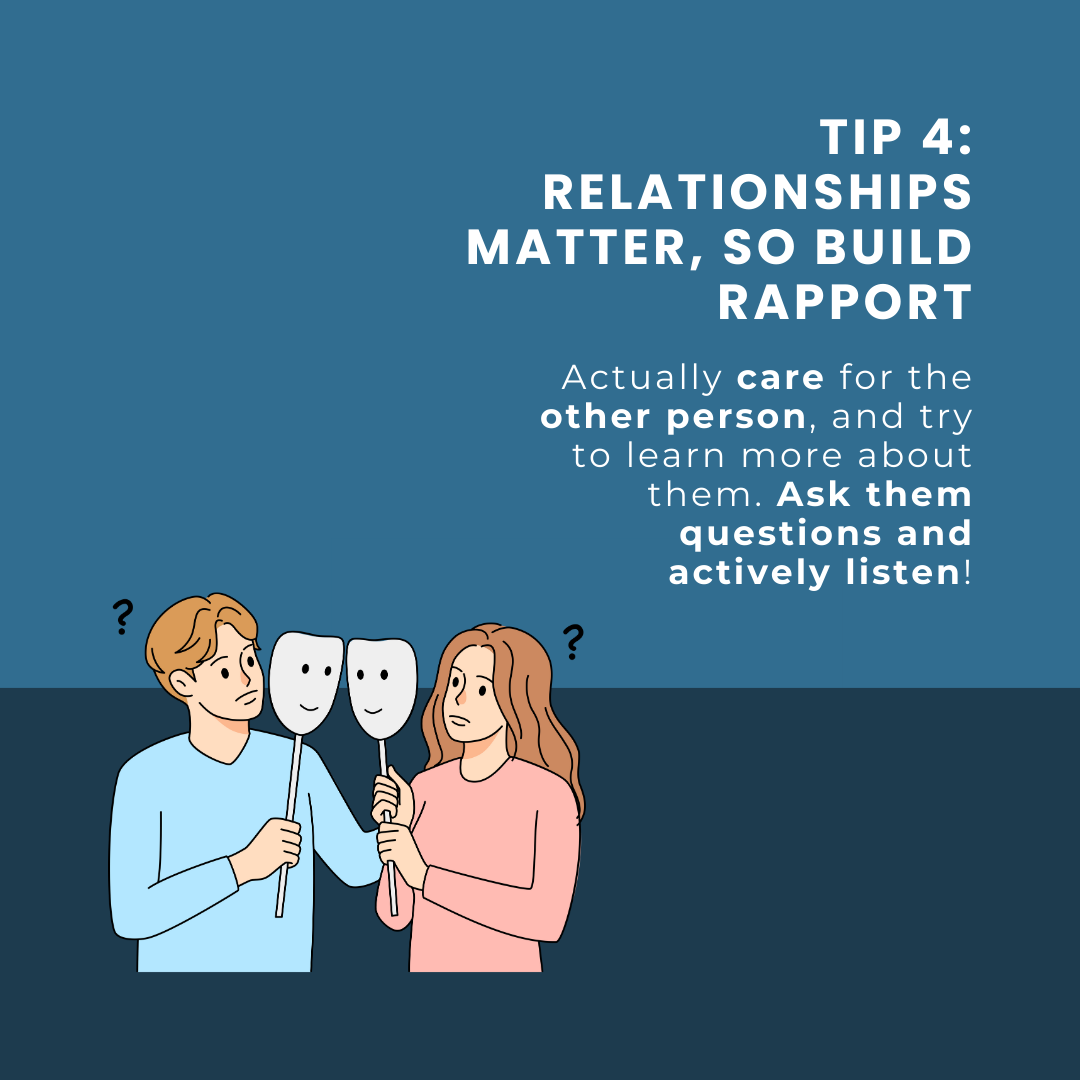
We never jumped into business matters without catching up about our common interests. Like it should be, yes, even in business meetings. As of 2024, you are not negotiating with AI but with another person.
Except once, throughout our negotiations. Except for that one meeting.
They got in that meeting after we almost closed the deal in our emails. We had almost shaken hands.
But they nibbled us (nibble: when one of the negotiating parties tries to add a term at the last minute to gain something extra), asking for a price increase for some of the licenses. Mentioning that the deal won’t go through their management without it.
Now, this was not something I would accept – I was ready to walk out.
Six months, we were speaking for that one deal. Our first even deal together. And it was now close, mere seconds before the finishing line, almost ready to break down.
I was a bit agitated, too. I find nibbling extremely annoying, and I never got myself to use it as a tactic.
However, preparation is key. And there we were, me having a “trick” up my sleeve.
Tip 5: Prepare your tradeables in advance, and use them
Because, I knew I could trade more than the price, to reach what I needed. All the things I could trade, to get a more favorable deal. Our tradeables!
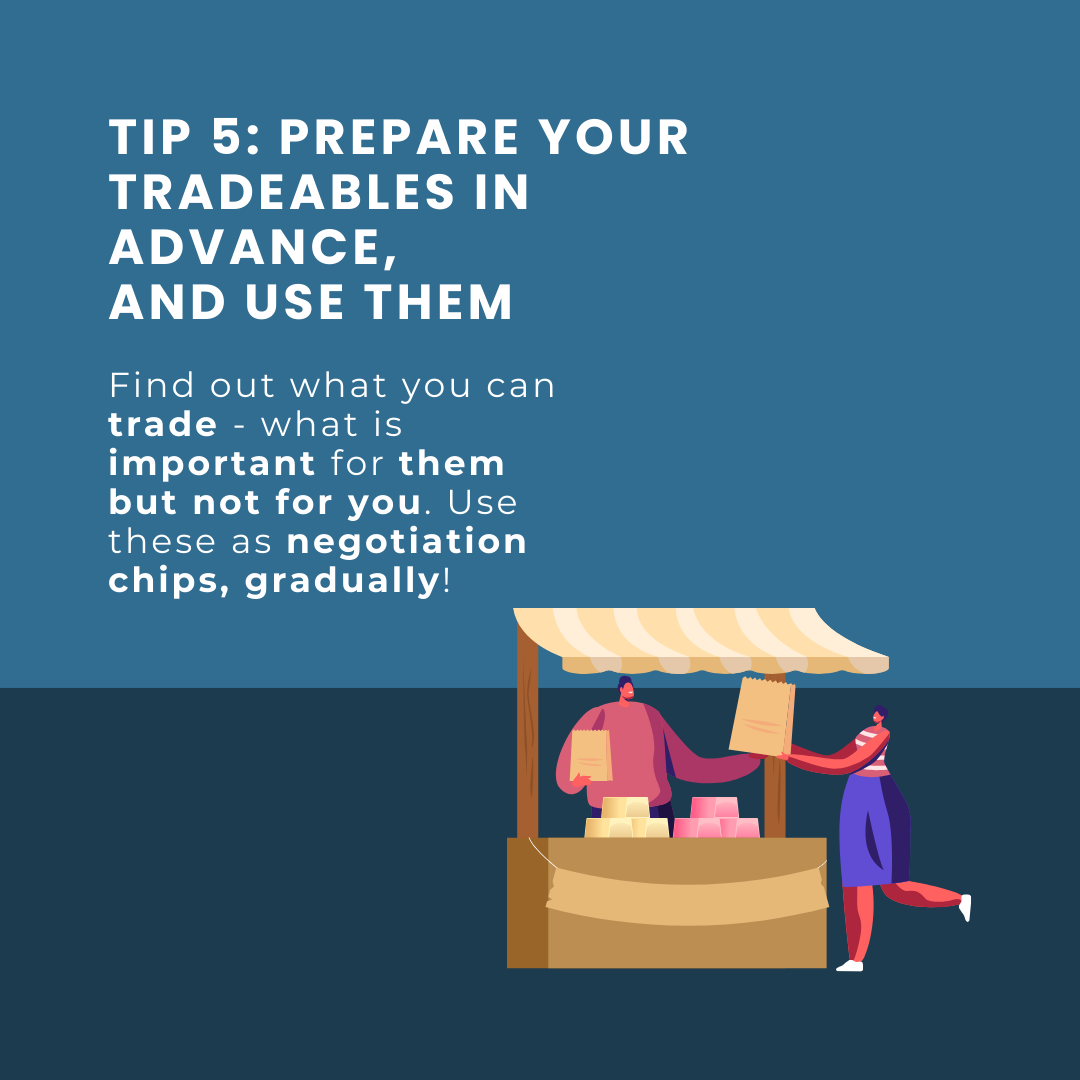
It’s vital to know what you want to get from a deal. Tackle your real problem (future article on that coming very soon). And that was to license promising titles. For how long, it was up to grabs.
We were very flexible in payment terms. A valuable tradeable for the other party, since they like to get paid in advance.
So when they told me the deal could not proceed if we didn’t increase the prices, I counteroffered.
Alright then – let’s not work the price only, but let’s work the durations and change the prices accordingly. You help me with the prices, you add a couple of titles extra to cover our losses, and we can pay the contract’s worth in one go too!
As much as I would like to say that I thought of this here and there, I cannot – because I was already prepared for such a scenario. What would happen if we got something for less time but cheaper?
These were the thoughts I presented to them, although running this through management first was needed before deciding. They agreed.
Tip 6: When in Doubt, Win Yourself Some Time
Adding an extra layer in the process is a smart move. Buying time and extending the calls for a calmer, better timing is crucial to you getting better at negotiations. Don’t rush things when it’s not needed to.

And I used that – went back to my manager, discussed, and saw that we could do that very gladly.
The outcome of it all?
We ended up signing the deal!
With less total durations, with increased prices, yes – but with slightly more titles, and ultimately ended up paying less in the total amount. And both sides were very satisfied with the outcome. Some of the licensed content of that deal topped our internal analytics for months. Our users adored the licensed titles!
A true win-win situation. These are the best deals, the ones to fight for if you care to build a strong, lasting partnership.
Case No. 3 – Walking Away as a Freelancer
For the last five years, I freelanced on digital marketing projects. To date, I converted and collaborated successfully with eight clients – not bad for a side hustle, eh?
So, this case I have already covered in a previous blog post. In short, it was about a small restaurant on a Greek island.
And with the owner, let’s say we had our differences.
For them, they wanted to have a top-notch, high-class social media presence.
But they were not that.
Do you know how Trappers and Rappers sometimes rent sports cars to shoot video clips?
How do they have replica guns and play it all cool and intimidating to show off?
It’s kinda lame, ain’t it?
And that would exactly be the case with the venue.
At first, I tried. But after a year of cooperating, I had to change my strategy.
Tip 7: Be Flexible
Because things change over time. Or, in my case, my initial assumption was wrong.
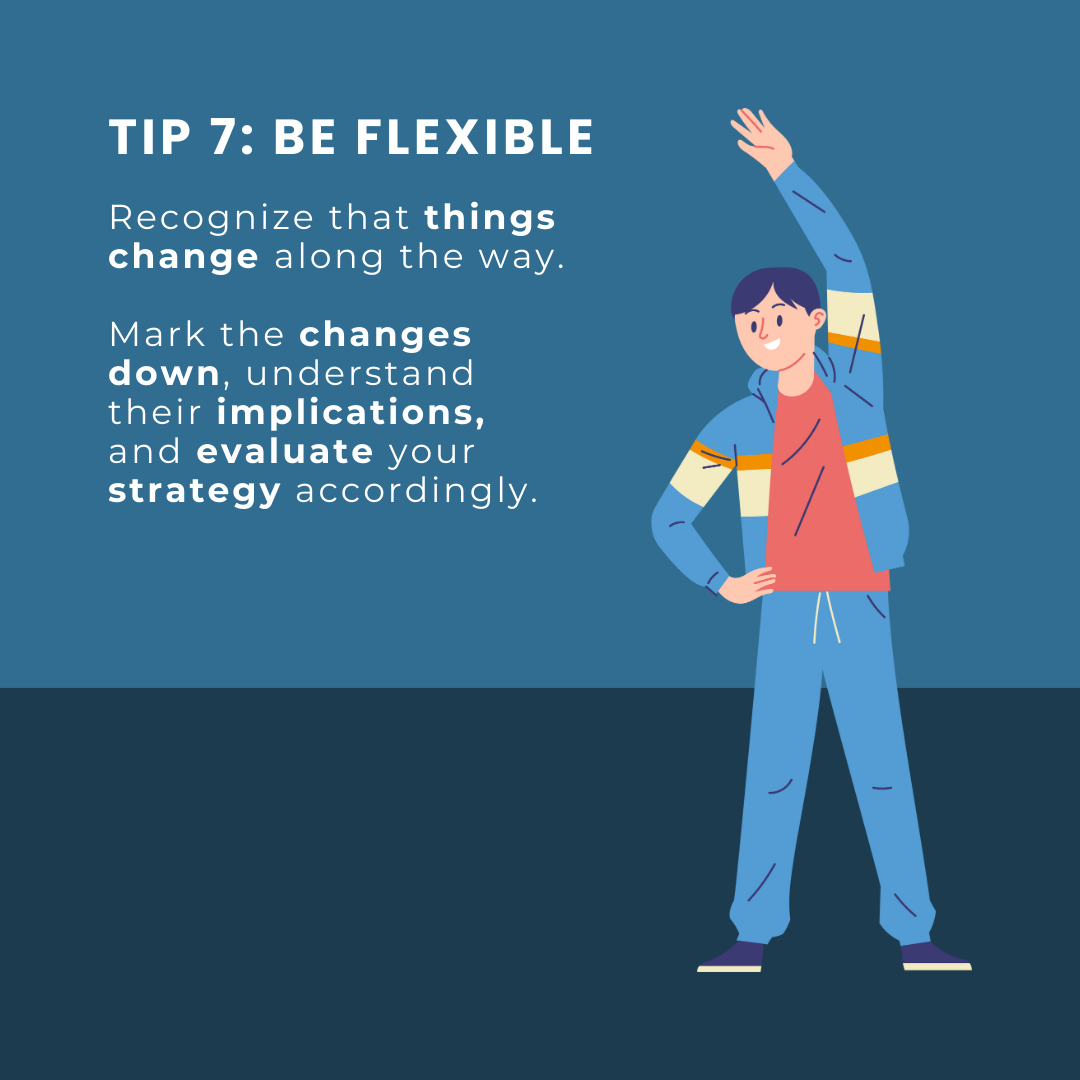
My advice, after reevaluating? Let’s keep it simple & authentic. Because, honestly, there was not much else we could do!
- They weren’t taking good pictures and videos; there was a limited bank of original content to create posts from.
- They would benefit more from being authentic so that customers knew what to expect.
- My time is precious, as well as their budget is finite – so I can ask for less money, work for less, and still meet and exceed business goals with a lower budget.
It was a win-win for both of us.
But they didn’t perceive it like that.
After some months, it was apparent they were not cheerful – even though they were getting solid follower growth, everything was going great digital marketing-wise.
I knew they didn’t like this much – but, here’s the thing.
Tip 8: Be prepared to walk away at any point
Setting up your red lines, what you shouldn’t agree with (tied with a clear reason why, one that you can fully articulate to the other party if needed), is something you should always note down mentally.
At any point, remind yourself that there are alternatives. Negotiations turn ugly? Well, you can walk away towards your plan B.
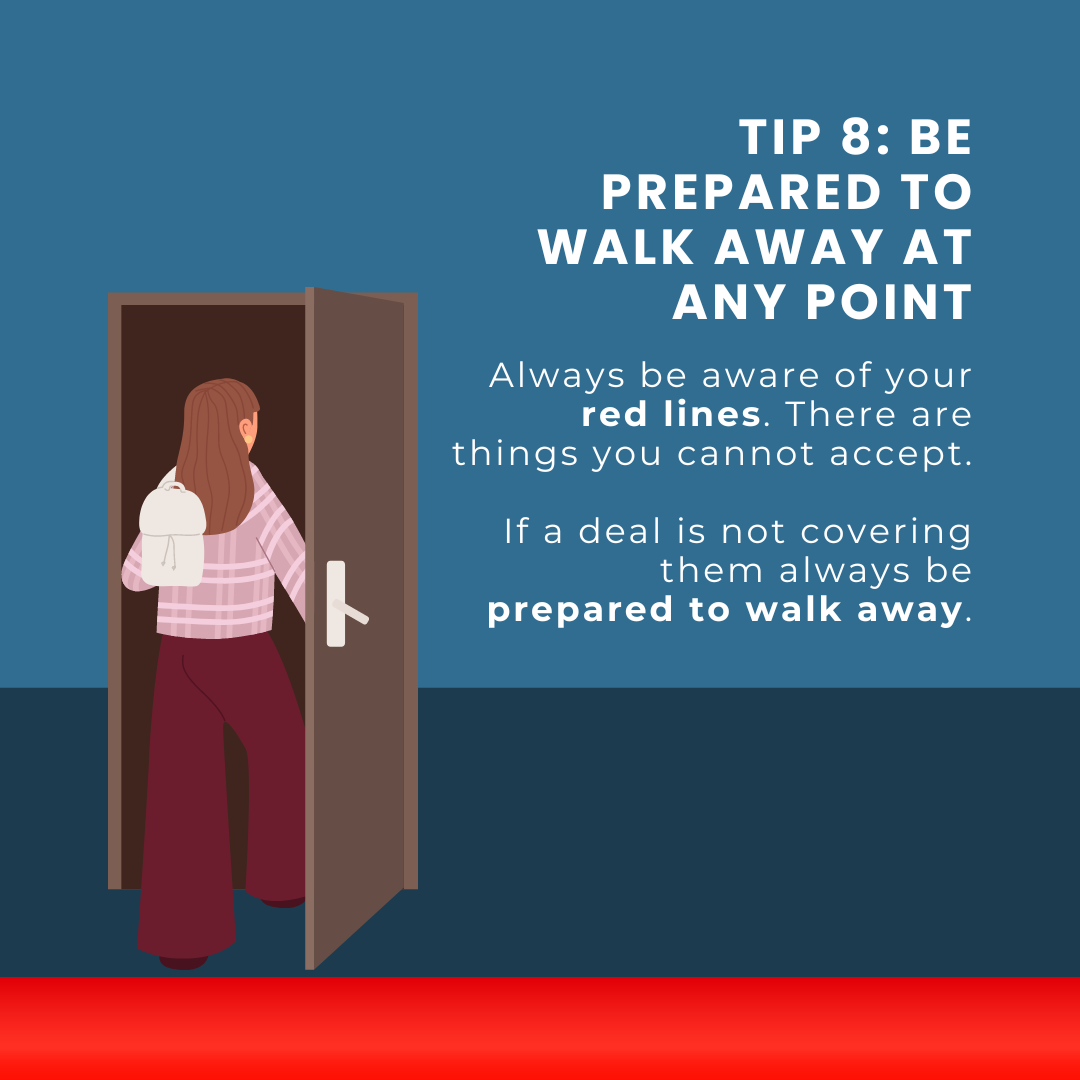
You just don’t have to make a deal every time.
Sometimes, a deal doesn’t work out. Or things change.
- Why agree on a bad deal?
- Why keep working with that?
- If they do not want to pay you as much as you are worth and are so price sensitive, not comprehending other factors – do you want to work with such a party?
And for me, I was sure that I was not! One of the magic of freelancing on the side is that you do it because you like it.
And I am very picky with whom I work with. Because I will work for you in my free time. It’s not my main source of income. My free time is spent on these tasks, so I might as well enjoy them!
So, secretly, I was ready to leave, if they were to tell me that they needed something else. No reason to fight for it.
In the end, when we closed the season, they told me that “they had to rethink their strategy and come back to me in March for the next season”.
Next year’s April came, and of course, they never came back. Had no doubts about it, even when I was on the call.
But I still thanked them for the season’s work, and even though I understood they were dishonestly cutting me off, I never acted toward that.
Why?
Tip 9: The Golden Rule – Always Be Nice.
Kindness will take you a long way.
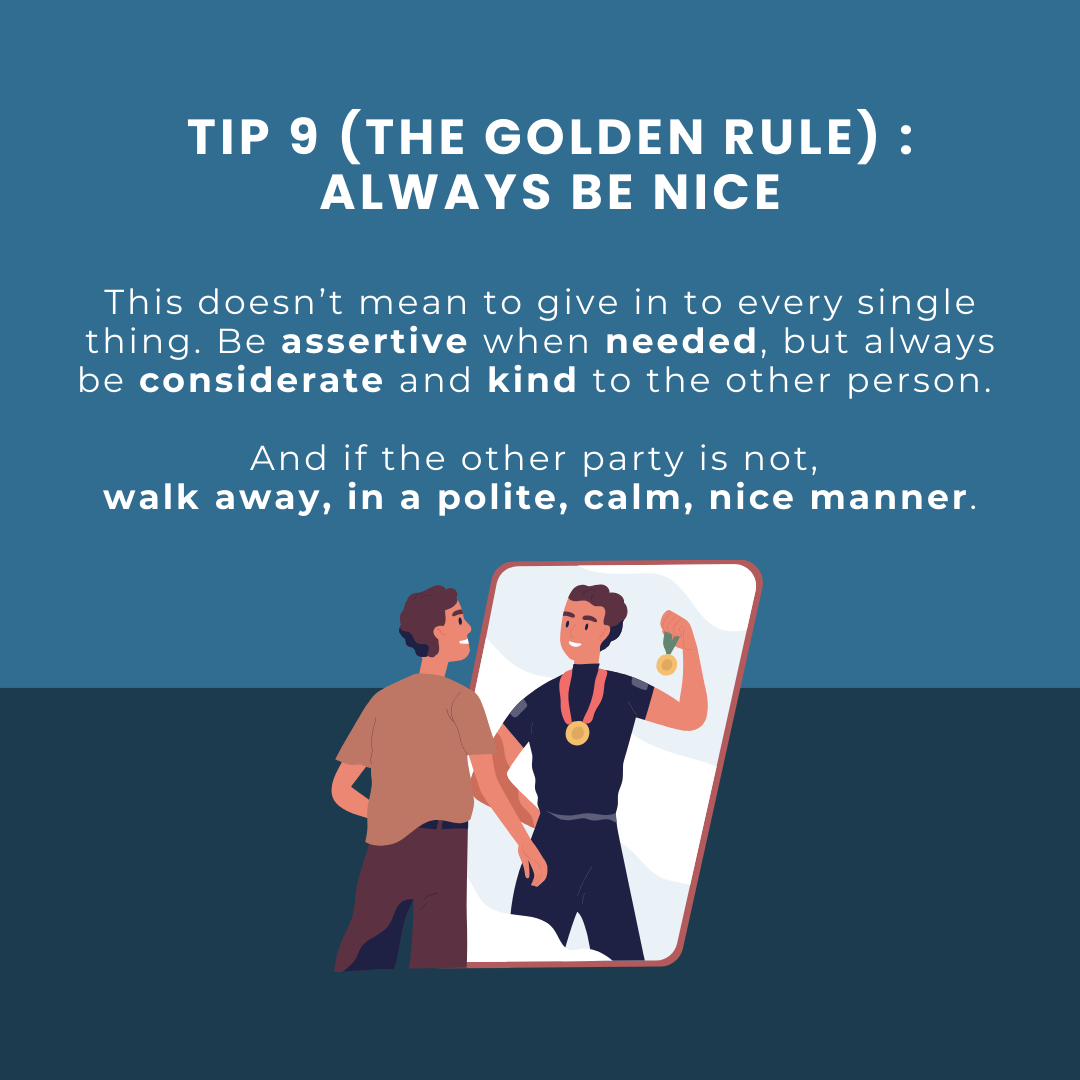
And, to cut you short: no. Being assertive and defending your position, being nice and understanding of the other party – these are not contradictory qualities.
They are what you should be in negotiations. All of them, combined
- Even when they give you a laughably low price.
- Even if they try to serve you with unfavorable terms.
- Yes, even when they are simply not nice to begin with.
Be nice instead. To fire, reply with water.
You can even bring it fully on yourself – sometimes, this is a valuable tactic. Example, instead of saying “You have submitted such a low offer, I would never consider that!”, go with “Well, thank you for your offer, however, due to x & y reasons, I am afraid I cannot accept it.”
Don’t be a fool. Never let others trick you.
But be nice.
And this will take you a long, long way in negotiations.
Go out there, learn more about them, and practice.
Good luck!
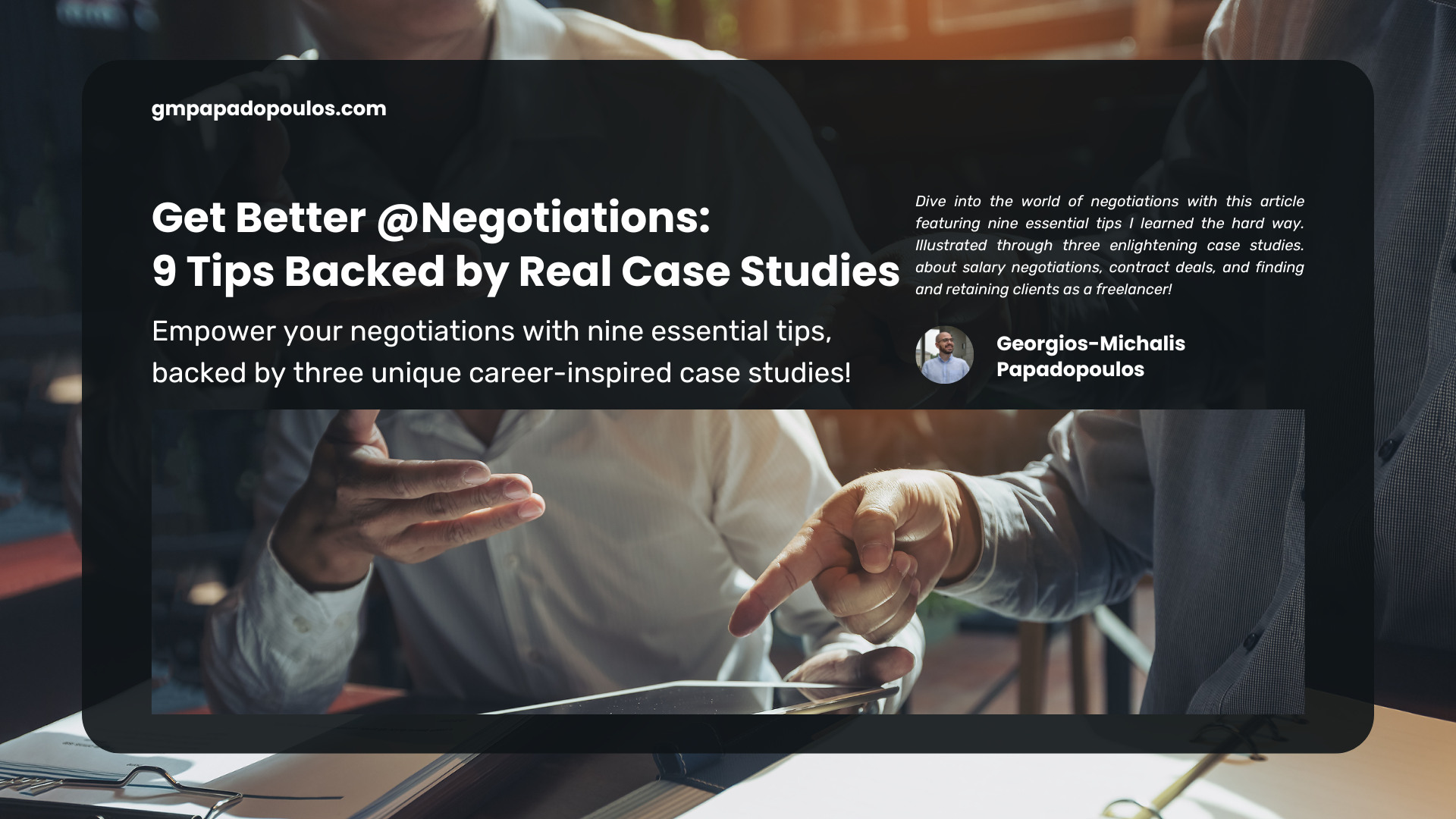
Comments are closed.